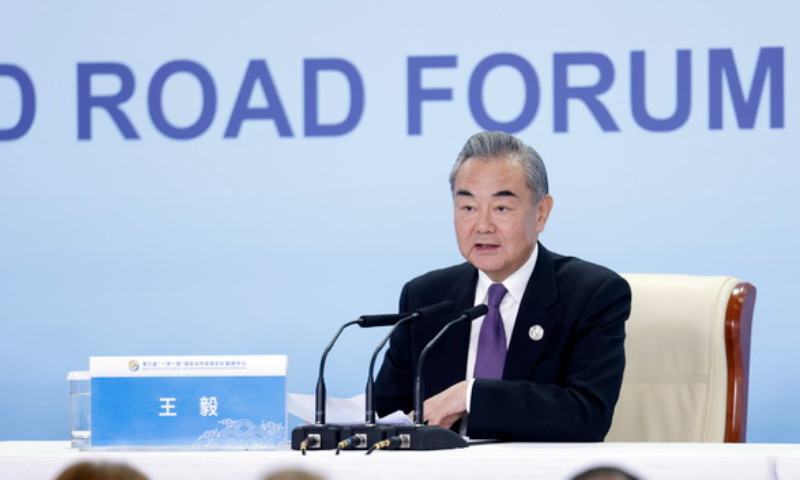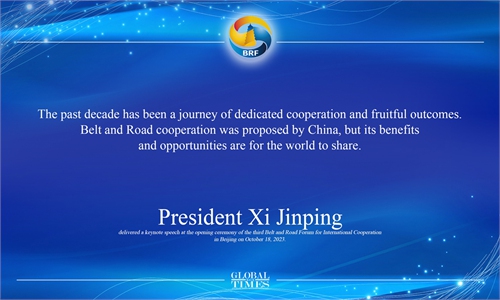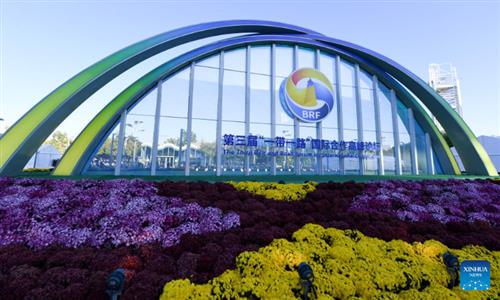
Wang Yi, a member of the Political Bureau of the Communist Party of China Central Committee and China's Foreign Minister Photo: fmprc.gov.cn
The attendance of 151 countries, 41 international organizations and more than 10,000 delegates at the third Belt and Road Forum for International Cooperation in Beijing shows the appeal and global influence of the China-proposed Belt and Road Initiative (BRI), China's top diplomat said at a press conference in Beijing on Wednesday.
The forum, which was held on Tuesday and Wednesday, was a grand gathering and a forum featuring unity, win-win and development, Foreign Minister Wang Yi said when summarizing the forum's achievements.
He summarized four points for this forum. First, the clearest signal the forum sent was unity, opening-up and win-win cooperation. Wang said that the signal was sent from Beijing to the world that peace and cooperation are needed, rather than division and a zero-sum mentality.
Second, the most important consensus reached at the forum was to take Belt and Road cooperation into a new stage of high-quality development.
Third, the grandest vision of the forum was to jointly achieve global modernization. Wang said that achieving modernization is the common aspiration of people of all countries and is also their right. For more than 7 billion people around the world to work together to realize modernization will be the most spectacular vision in human history.
Fourth, the most prominent feature of this year's forum is action-oriented efficiency and pragmatism. Wang noted that at this year's forum, all parties yielded a total of 458 cooperation results, each of which was tangible, and this number far exceeded that of the second forum.
When answering a question regarding how China views the infrastructure schemes proposed by other countries, Wang said that the China-proposed BRI is an open platform and China welcomes all parties to join at any time. At the same time, China hopes that other countries will also maintain an open attitude toward connectivity initiatives and China is willing to cooperate with all connectivity initiatives.
Wang expressed willingness to link the BRI with the EU's Global Gateway strategy to play out the advantages of both China and the West. Wang said that viewing the US-proposed Partnership for Global Infrastructure and Investment as a counter to the BRI is a means to politicize economic issues, which is short-sighted as well as negative.
Wang said that China is willing to view competition from a positive perspective.
"Let's compete on the world stage: who can build more roads, railways and bridges for developing countries? Who can build more schools, hospitals, and stadiums for people in low-income countries? China has this confidence," said Wang.




